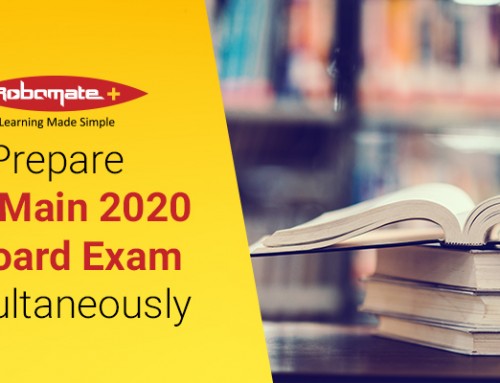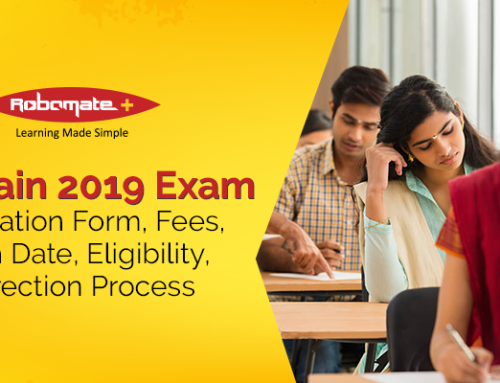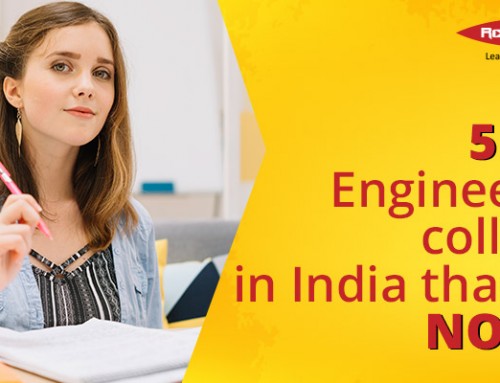Joint Entrance Examination (JEE) is an engineering entrance examination which is being conducted in place of AIEEE. The candidates who have cleared JEE are eligible for admission into National Institutes of Technology (NITs), Indian Institutes of Information Technology (IIITs), and “centrally funded technical institutes” (CFTIs).
Application Form
Good news for the aspirants of JEE Main, the exam will be conducted twice in a year in the month of January and April. Candidates can visit the official website and fill in the application. Keep all the documents handy such as educational certificates, adhar card, and contact details. The application will be in two steps, registration and filling of application form.
Application Fee:
The candidates for appearing for JEE main 2019 have to pay the application fee. The payment can be done online through debit or credit card; the candidates can also make payment through e-challan of Syndicate bank, Canara bank or ICICI Bank. Make a note that once the application fee has been paid it will not be refunded or used for the future purpose.
Fees for local candidates:
The application fee for JEE main paper 1 or paper 2 for boys under general category is 540 rupees and for girls under general category is 250 rupees and for reservation category, the students have to pay 250 rupees for paper 1 or paper 2.
The application fee for both JEE main paper 1 and JEE main paper 2 for students under general category boys 1300 rupees and for girls 650 rupees, for reservation category fees, is rupees 650 for both boys and girls.
Fees for foreign candidates:
In case the candidates are appearing for the exam from a foreign country, under general category the fees for IIT JEE main paper 1 or JEE main paper 2 for boys is 2500 and for girls, it’s 1250 and for reservation category, it’s 1250 for both boys and girls. The candidates appearing for JEE main paper 1 and paper 2 from foreign countries have to pay an amount of 3800 and girls have to pay an amount of 1900 rupees, for the reservation category the fees is 1900 for both boys and girls
Exam Pattern
JEE main 2019 examination will be conducted in online mode i.e. computer-based test. The duration of the exam is 3 hours. The question paper will have all the objective type questions in the form of MCQs. JEE Main Paper II drawing section will be will be pen and paper-based.
The candidates can attempt examination in Hindi or English language, giving the option of attempting in the Hindi language gives an opportunity for the people of a Hindi medium to write the exam with confidence. In addition to Hindi, students can also attempt exam in the Gujarati language. This option is available for students appearing for the exam from Gujarat Daman and Diu Dadra and Nagar Haveli.
JEE main examination will have paper 1 and paper 2. Paper 1 is for the bachelor of engineering or bachelor of technology, the questions will be from maths, physics, and chemistry. Each subject will have 30 questions carrying 120 marks, so paper 1 will be of 90 questions with the maximum marks of 360.
Paper 2 is for the bachelor of architecture or B. Planning. The paper will be in mathematics, aptitude test and drawing. Maths section will have 30 questions with max marks of 120, aptitude test will have 50 questions with maximum marks of 200. The drawing will have two questions with maximum marks of 70. For both paper 1 and paper 2, each correct answer carries 4 marks and each incorrect answer carries one negative mark and questions which are not attempted will not have any negative marking.
Syllabus
Syllabus for Paper I is as follows
Mathematics
- Sets, relations, and functions
- Complex numbers and quadratic equations
- Matrices and determinants
- Mathematical reasoning
- Mathematical induction
- Permutations and combinations
- Sequences and series
- Limit, continuity, and differentiability
- Integral calculus
- Differential equations
- Binomial theorem and its simple applications
- Three-dimensional geometry
- Vector algebra
- Co-ordinate geometry
- Statistics and probability
- Trigonometry
Physics Section A
- Physics and measurement
- Kinematics
- Thermodynamics
- Work, energy, and power
- Rotational motion
- Gravitation
- Laws of motion
- Properties of solids and liquids
- Electronic devices
- Kinetic theory of gases
- Oscillations and waves
- Communication systems
- Current electricity
- Magnetic effects of current and magnetism
- Electromagnetic induction and alternating currents
- Electromagnetic waves
- Optics
- Dual nature of matter and radiation
- Electrostatics
- Atoms and Nuclei
Section B
- Experimental Skills
Chemistry Physical Chemistry
- Some basic concepts in chemistry
- States of matter
- Atomic structure
- Chemical bonding and molecular structure
- Chemical thermodynamics
- Solutions
- Equilibrium
- Redox reactions and electrochemistry
- Chemical kinetics
- Surface chemistry
Organic Chemistry
- Purification and characterization of organic compounds
- Hydrocarbons
- Chemistry in everyday life
- Principles related to practical chemistry
- Organic compounds containing halogens, oxygen and nitrogen
- Polymers
- Some basic principles of organic chemistry
- Biomolecules
Inorganic Chemistry
- Classification of elements and periodicity in properties
- Hydrogen
- Block elements (alkali and alkaline earth metals)
- P Block elements (group 13 to group 18)
- d- and f – block elements
- Co-ordination compounds
- Environmental chemistry
- General principles and processes of isolation of metals
Syllabus for Paper II is as follows
Part: 1
Awareness of persons, places, Buildings, Materials. Objects, Texture related to Architecture and build—environment, Visualising three-dimensional objects from two-dimensional drawings, Visualising. different sides of 3D objects, Analytical Reasoning Mental Ability (Visual, Numerical and Verbal).
Part: 2
Three dimensional – perception: Understanding and appreciation of scale and proportion of objects, building forms, and elements, color texture, harmony, and contrast. Design and drawing of geometrical or abstract shapes and patterns in pencil. Transformation of forms both 2 D and 3 D union, subtraction, rotation, development of surfaces and volumes, Generation of Plan, elevations and 3 D views of objects. Creating 2-D and 3-D compositions using given shapes and forms.
Sketching of scenes and activities of urbanscape, rural life and landscape
Exam Date
JEE main 2019 is expected to be conducted in two sessions first in January and the second one in April. The first session will be conducted from January 6 to 30 January 2019 and the second session will be from April 6 to April 28, 2019. The results will be announced on 31st January 2019 and 30th April 2019 respectively.
Eligibility
JEE main 2019 eligibility criteria have been issued by the authorities, the candidates’ applications which do not meet the eligibility criteria will be rejected. Here we list the eligibility criteria for the students appearing for JEE main 2019
Age: The candidates who are born on or after 1st of October 1994. The reservation category students i.e. Backward classes or physically handicapped students will have age relaxation they can apply for exam who are born on or after 1st October 1989.
Qualification: The candidates who have appeared for class 12th examination in 2017 or 2018 or appearing for class 12th examination in 2019 are eligible to write JEE main 2019. Candidates will be given admission only if they have passed 12th standard or equivalent examination as approved by the board. There are no check percentage marks required in 10th standard to be eligible for the JEE main examination. The candidate should have physics, chemistry, and math as their main subjects in 12th standard
Correction Process
NTA has allowed correction in certain parts of the application form by remitting fee. The candidates can edit Name and date of birth as per X class certificate, candidate photo and signature, contact details, exam center, change the mode of examination paper-pen to online but not vice versa, paper (I or II or vice versa) and Adhar number.












